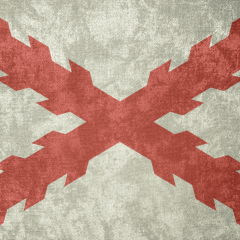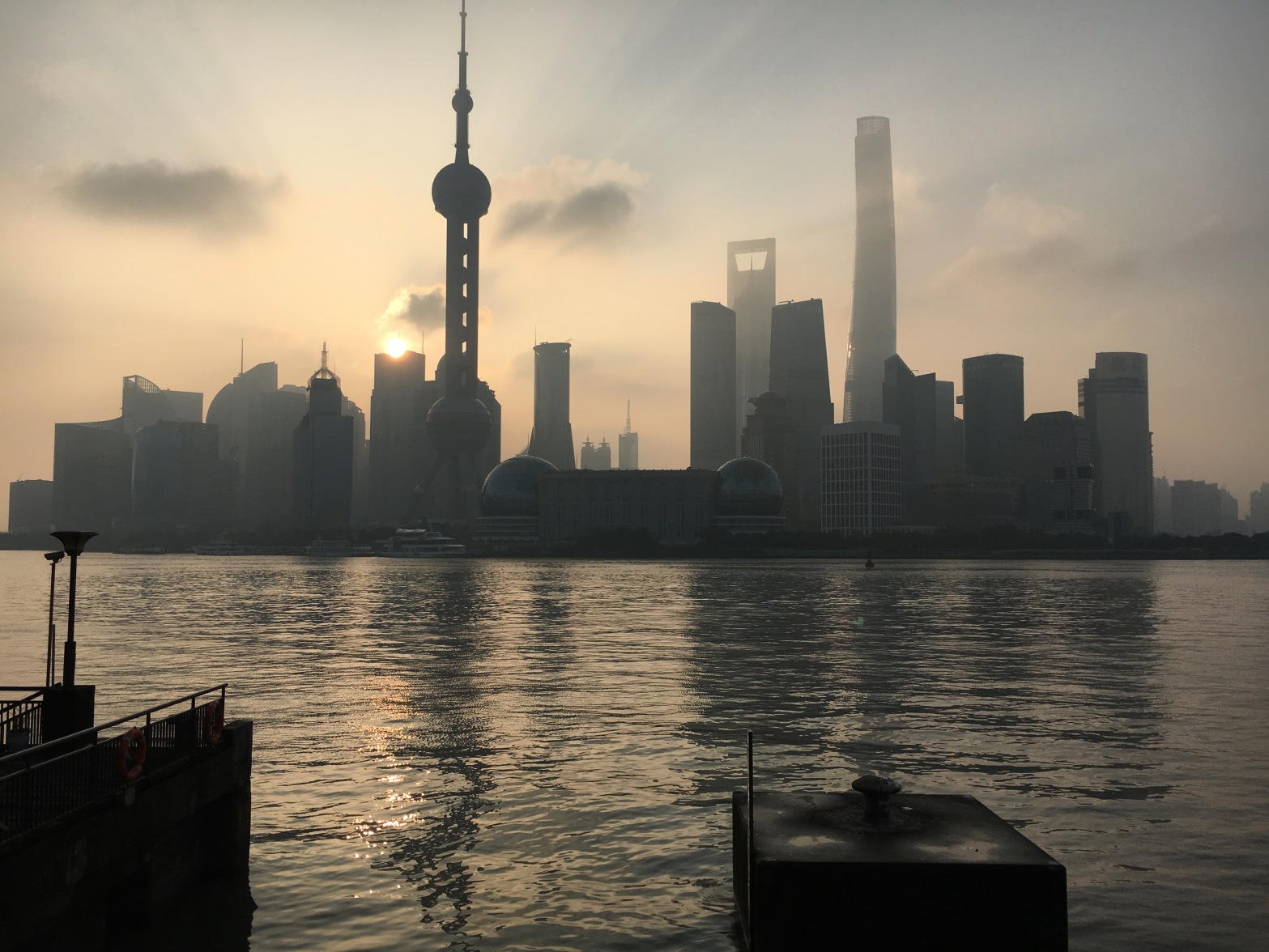There was a rumour that my grandfather, Arthur Harris, was part Chinese. His grandmother was Irish who arrived via the port of Liverpool. According to the legend had been left, with child, by a Laskar sailor, she moved to London, married Arthur’s grandfather and life moved on. Looking at pictures of my grandfather and our mutual lack of body hair supported this bizarre legend right up until ’23 and Me’ burst that bubble to reveal the more prosaic fact that I am mainly English and Irish, genetically, with a 6% smattering of French, probably via Huguenots arriving in East London in the 18th century.
I first went to China in 1992, a quick and unremarkable business trip to Beijing which was cut short after a day when I was sent packing, for the unforgettable business crime of being found out that I was about to jump ship to the competition. I think at the time we still referred to it mostly as Peking.
In the intervening 30 years I have been often to China, mainly in the south of what is an immense country, so I would not in any way consider myself an expert or even a Sinophile. I have had offices under my direction in Shanghai on three occasions, one of which was actually on the Bundt in the old Hong Kong and Shanghai Bank Building. Now occupied by some regional minor Chinese bank, its insanely large single-piece 50′ green marble pillars hold up the domed roof of the grand foyer with its mural of the centers of global trade, as of the time of construction in the 1930’s. Our office was accessed from an unassuming side door around the corner but there was definitely a sense of Shanghai as this global city of trade. The Bundt was that symbol, colonial grandeur on a grandiose scale, replete with expensive restaurants and bars and the view of the burgeoning Pudong business district with its Soviet style Sputnik inspired radio tower overshadowing all else. Since then, I have had two depressingly small and modern offices in unassuming buildings back from the main drag and that has been mostly due to Shanghai’s rise, its massive building boom and the inflation in office rents.
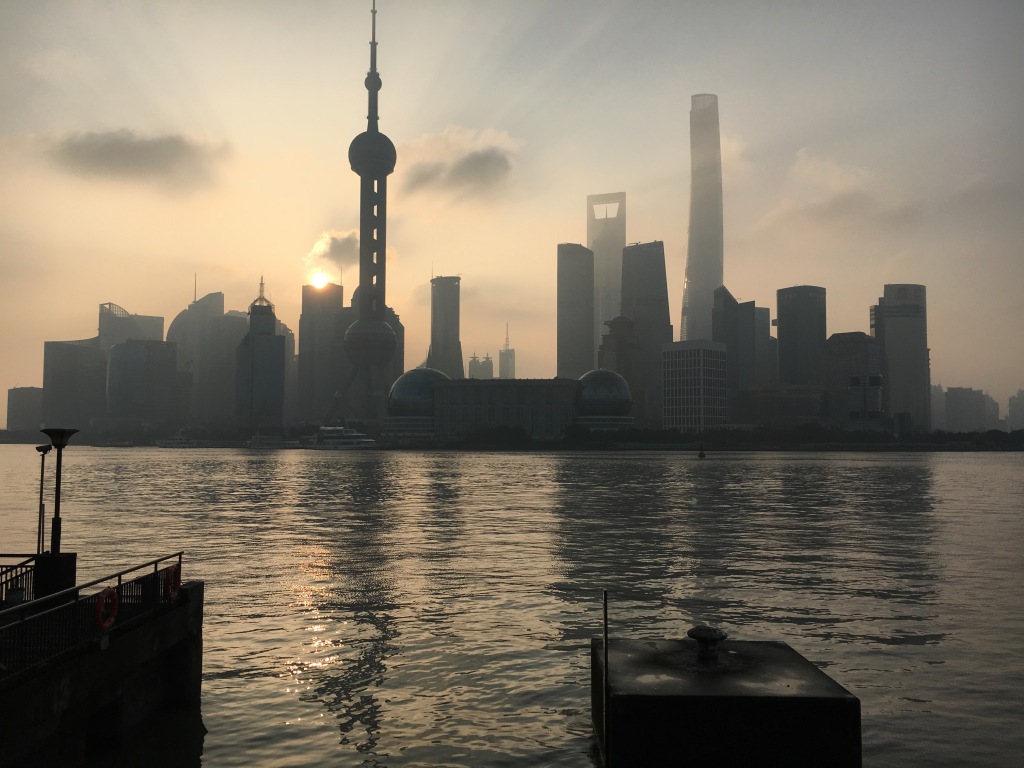
I had a gap in visiting China from the middle of 1999 until 2005, and on my first trip back I can vividly recall the long grey drive from the airport into the city and seeing all the factories, that you were used to seeing, being knocked down and office parks being built. The offices were for banks and insurance companies as Shanghai pivoted to try and become the Asian financial hub and compete with Hong Kong. This was the start of the rise of China’s middle class, the domestic market for houses, apartments and appliances was taking off. There were of course still factories and a trip to Shenzhen the next year, where we held a sales meeting at a golf resort reminded you of where that growth was fueled. Western golf resorts have one championship course designed by famous old white golfer dude, maybe two. This place had 18 courses, each 18 holes, each designed by a different old golfer dude. I could run first thing around the various fairways but only that early. By coffee break at 10.00 the air was acidic and metallic, by the lunch break it was visible and by the evening it was plainly toxic.
In 2005 Shanghai was booming, the old houses of the French concession held small boutiques and restaurants, and it was popular with tourists. I like many visitors brought back imitation luxury handbags and watches, if you paid a bit more you went to rooms in the back of shops where the quality knock-offs were found, probably copied directly on the production line of the main western brands, but if you just wanted a Louis Vuitton copy handbag there were hundreds of street sellers who would sell you one for $10 in hard green currency.
I took another break from visiting between 2009 and 2015 and when I came back next the change had accelerated again. The Chinese financial and property development companies were trying to out-do each other with more and more ornate, flashier towers overlooking the Bundt from Pudong. The radio tower is now completely overshadowed by these new and ever taller skyscrapers of modernist style that would not look out of place in Hong Kong or New York and in a uniquely Chinese touch, each of these large glass monuments to commerce is completely covered with moving light displays, mainly high-tech ads for cars and air conditioners but on a scale that makes Time Square seem like Piccadilly Circus in the 1950’s.
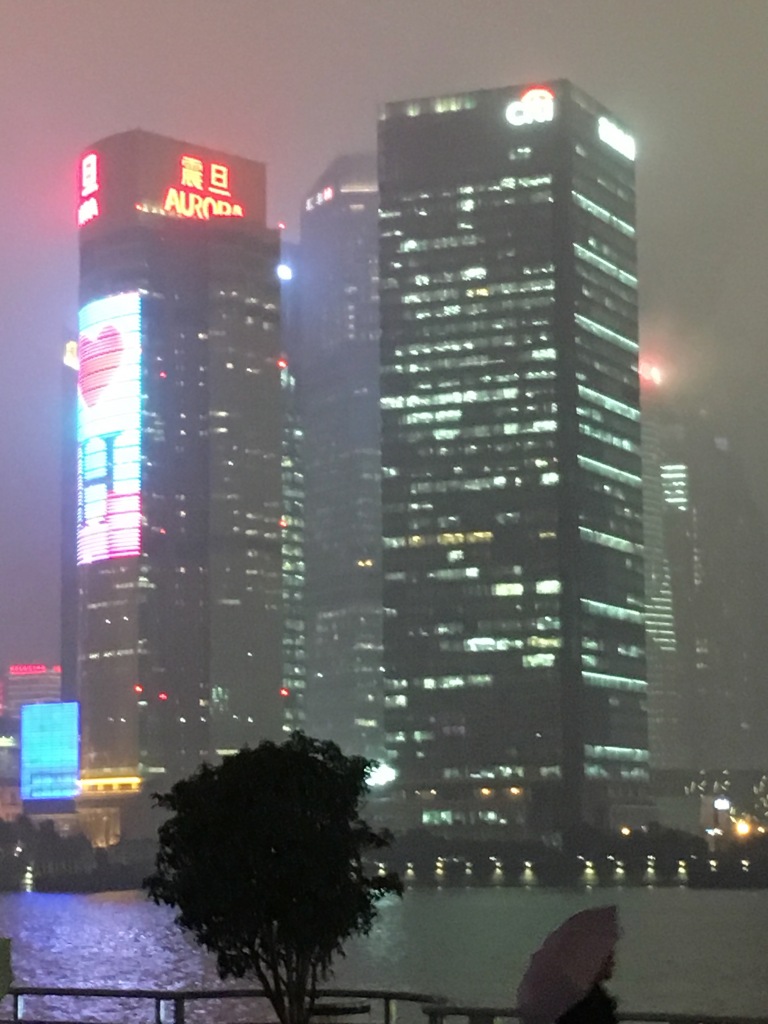
The cheap knock offs had gone, and the reason was self-evident, in every shopping mall that had popped up the western luxury good shops were wall to wall. Xintiandi had become Beverly Hills. There was an odd irony as in the middle of the district is the hallowed site of the first national congress of the Chinese Communist party and around that much lauded and revered former school is surrounded now by some of the most expensive real estate on earth. I visited other cities like Xiamen and Quanzhou and back to Shenzhen. The acrid air had completely gone, as had the factories producing running shoes, sneakers and plastics. They had been shipped off to cheaper labor markets in Vietnam and Thailand. The riverside locations which had been convenient to load finished goods in boxes into boats to go down river to the ports of the Pearl River delta were now apartment buildings and parks. President Xi’s mother lived there, of course the air was clean. If you were a resident of Guangdong province, you had unfettered access to Hong Kong, partly to allow residents to work in Hong Kong. If you were mega-rich it was worthwhile having a property in Guangdong and make that your official residence to get that access to Hong Kong and the freedom to travel when you wanted without visa issues and if something went sour between you and the increasingly doctrinaire government, you could get out of the country easily.
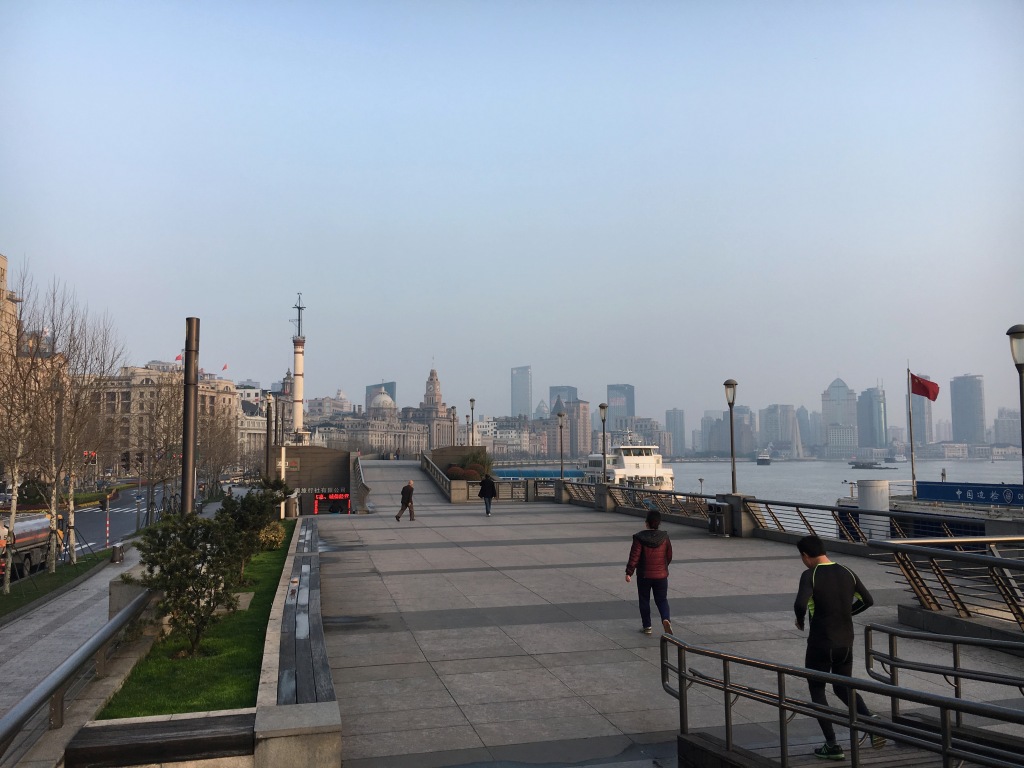
I always loved Hong Kong. Its energy was stimulating, the variety of food and shopping was more interesting than the mainland generally, and as I was fortunate to have friends living there I would by default weekend in Hong Kong rather than Shanghai. If you stayed in a western primarily tourist hotel in Shanghai or Beijing you still had reasonable internet access to the west, CNN was on the TV together with BBC World and Al Jazeera. If you stayed in Hong Kong, you were still in the democratic world, both figuratively and spiritually, basic western norms of censorship, freedom of the press, freedom of expression. It was the only place anywhere in China where you could even mention Tiananmen Square, they even commemorated it every year.
Since the ascendance of Xi and the shift from politician to God-like figurehead, the new Mao in the Chinese consciousness, things had been going generally well on any measure. GDP growth was the envy of the world year-on-year, even if we all knew they massaged the numbers. They had been successful at bringing a billion people out of poverty. They also seemed to be making massive strides in technology, what the Chinese people used their phones for, on a day-to-day basis, was 3–4 years ahead of the west. Their on-phone gaming, entertainment sites and combinations of what in the west are several distinct activities was impressive and world leading. The reason was simple, they had a massive domestic market, and they were pretty good at keeping foreign well-funded competition out. They had done that across many sectors, but the phone-based consumer economy really stood out.
Then they decided they didn’t like a China copy that didn’t have the same restrictions as the motherland, as it might give people ideas about their Xi-thought based controlled existence, if they saw another way for Chinese people to be governed. Unsurprisingly then Hong Kong got shut down, freedom of press gone, right to protest gone, right of assembly gone, right to criticize the government gone. The local government does not just kowtow to Beijing it actively worships the direction and instructions handed down. They also quietly closed that escape route for the rich and successful out of Guangdong.
Then they gave the world Covid-19, either directly through a lab escape or indirectly by continuing to turn a blind eye to live wild animal ‘wet’ meat markets to mix pathogens and species. In a country with an infallible God-like leader massive uncontrolled pandemics are embarrassing, so the Chinese government went by the standard authoritarian playbook. Denial, punishment of anyone who has the temerity to report that shit is out of control, belated and limited steps to lock it down, refusal to cooperate with all the multilateral medical treaties put in place to speed sharing of vital data. As China prides itself as a technological global leader it would be equally embarrassing to admit that it cannot make a truly effective vaccine, so they continued to ignore Western offers of assistance and continued to promote the myth of their great scientific hegemony by donating millions of doses of Sinovac’s vaccine to the emerging economies in Africa, Middle East and sub-Saharan Africa, even though it had very limited efficacy and had issues with younger patients and limited testing data was shared. The elite in Beijing were of course protected and their limitations experienced daily were mild. The rest of China however enjoyed Orwellian levels of control; months locked inside their apartments with food delivered to the housing compounds while geriatric male local wardens enjoyed the power of an official armband on the sleeve to enforce an iron like lock on daily life. Shanghai had the temerity to suggest the rules were overdone and after the first wave of infection abated tried to move back to some sense of normalcy. Beijing always has a beef with Shanghai, it’s always seen as too uppity, too open to the outside world and their heretical views. So, while the rest of the world actually went through various waves and built up a general herd immunity over the two years of the main pandemic China isolated itself. The government recommended traditional herbal remedies, partly because their health system is spotty at best and if you are in the boonies your local ‘health care’ is a partially trained nurse in the next village over and you are hundreds of miles from a real hospital. They spread good news stories through the media about their medical heroes, how everyone was happy and at home. Chinese social life is set up around very small living spaces, generally shared with multiple generations, leaving for work 6 days a week and eating out a lot. Not as great a place to be locked in for months at a time. Unsurprisingly at the end of 2021 the wheels started to come off so overnight it seemed, the government gave up and let it rip through the population. They still publish death figures, but according to the official data very few people were able to die in front of someone having just been tested positive for covid to qualify under their byzantine rules as a ‘covid related’ death. However, the crematoria data told a different story. The data was leaked then quickly disappeared, as is their way.
Technically Chinese residents have been able to travel, as in request an exit visa, since January 1st, 2022. Very few did in 2022 as they faced a 4-week, later reduced to a 2-week, government sponsored and controlled quarantine upon return. As of this January the requirement for quarantine is only in the case of a resident arriving in an infected state, although they have a declaration requirement for entry into China which generally prevents you entering back into China, resident or not, if you are ill with Covid. Chinese tourism to Europe and the US is still very low this summer, the large number of Chinese tour groups with their flags, obsessive photographing anything and everything will not be missed other than by the tourism industry. We did a tour of the Vatican and Sistine Chapel in 2018 and it felt like getting on the Kowloon Ferry at rush hour, all you could hear was the sound of the cash register and the fact that every piece of elaborately ornate art bore the legend of how someone or other had gifted it, Jean Calvin would be surprised to hear they are still selling indulgences it seems.
I arrived in Pudong airport two weeks ago for the first time since 2019. I scanned my QR code of my health declaration entered through the ubiquitous WeChat app and was let in. It had a whole performative quality to it as no-one really took the code check seriously. A Polish acquaintance on the same trip had struggled to get the QR code so instead, in frustration, photographed an Amazon return label’s QR code and brandished it noisily rather than scanning it and was waved through. Very few people wore masks. In fact, I saw more masks in San Francisco on hipsters walking their dogs in the Spring.
There are 42 desks for passport checks at Pudong. I have been through on prior trips and all 42 are in use, its massive but historically they are set up to handle very large volumes, over half are for returning residents. They had 8 open for residents and 4 for ‘Foreigners’. The airport is cavernous and empty of people now, for a long boring reason I ended up arriving and leaving China twice in 5 days. I decided to get some exercise after a long flight from London and walked up the half mile long terminal away from the gates that were active and after a couple hundred yards it got super sticky as they had turned off the AC for that half as it was just not getting any traffic, the retail outlets are shut down at that end.
Shanghai was busy, it is holiday season and I was attending a trade show, one of several that were going on. The majority of visitors though are Chinese. The hotel we use near the office is a Marriott Renaissance but it has now pivoted to Chinese domestic tourists as the foreigners are obviously not numerous enough to support the hotel. So now on the hotel WIFI you cannot access Google, you can access the sanitized Bing (thanks Microsoft, still helping Big Brother!). The TV only shows Chinese TV, 32 channels of sanitized approved messaging consistent with President Xi Jinping Thought. There is an English language new channel, China International News Television. We were served up some scripted version of global news by their versions of William Joyce, a big bluff American anchor in suit and tie straight out of CNN in 2005 and supported by a couple of Aussies. The ticker across the bottom was displaying headlines about US aggression and Chinese good works. Looking out of my hotel window the building site across the road where they cleared the old style Shikumen houses is still scrub and debris. The cranes across the cityscape can still be seen but you can count them now, a fools’ errand in 2015.
The electric scooters have mysteriously disappeared. They had competing app-based young startups fighting for share and Unicorn valuations when I was last here. They have conquered the world although Paris just banned them and San Francisco have limited them but in the homeland they have been completely excised as if they never existed. When I first visited Shanghai, the streets were full of bicycles, old big wheel city bikes. The cars were revamped older models of Volkswagen and Buicks, Toyotas and Renaults. Then the bikes were replaced by motor bikes and the cars started to get more diverse. Then the motor bikes were all changed for electric, silent death for unwary pedestrians, the e-scooters were all over the pavements and the cars were all BMW’s and Audis. Years pass and the bikes are back, but they are rental bicycles, the e-scooters are gone. The cars are now 50% electric with Tesla the market leader but most of the brands are local. The models are futuristic and slightly alien, the diversity of car brands you have never heard of is odd. The strangest one is “Build Your Dreams’, yes that is the company name and it’s not a shake-based diet, the badge is on the car rear in all three words not BYD, which I guarantee is how it will be marketed in the west; they are serious, and Berkshire Hathaway is an investor. Zeekr, Wuling, Xpeng and Nio are all fighting for share and all looking to export. I have been involved with purchasing lots of stuff from China over the years and its low tech in general but their predilection for cutting any corner they possibly can to save a nickel does not make me rush to buy something as serious as an electric car. In fact, I pull my hair out over how a garden hose cannot make it through the summer so a potentially very fast lethal device built around a lithium battery that can and do explode does not fill me full of hope.
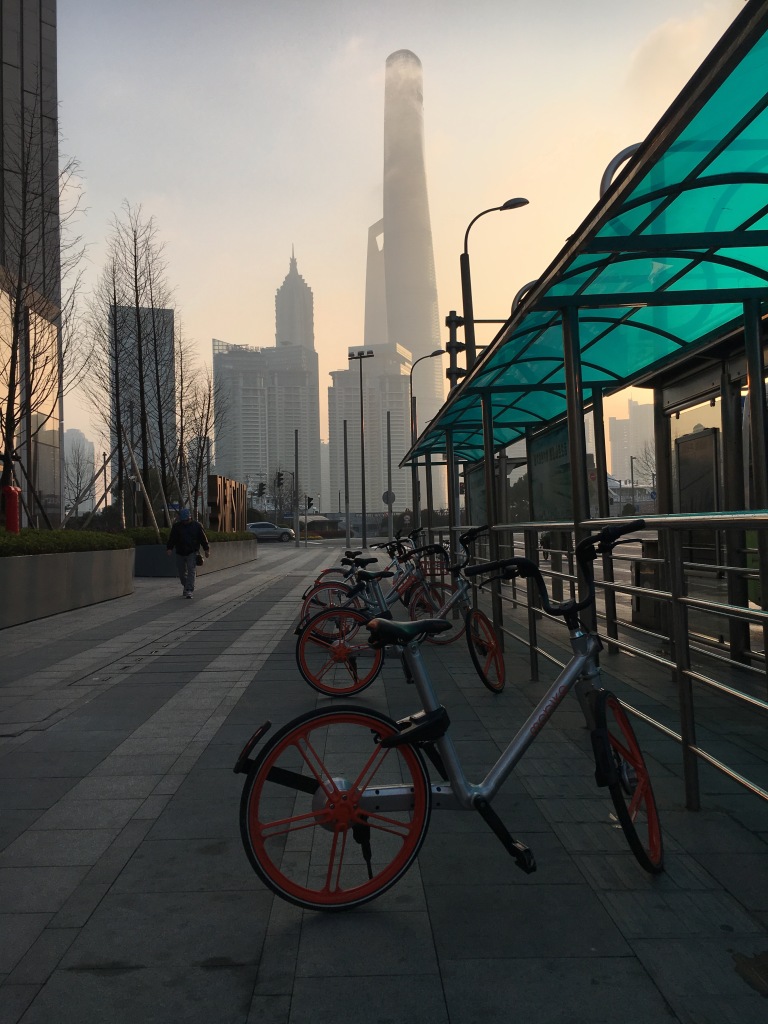
Overall Shanghai looked tired and worn around the edges. The Beverly Hills style shopping malls with Carrara marble entryways are now all chipped and any fine work is broken or uneven, probably was not Carrara marble after all. The exhibition center which was built for the World Expo in 2010 has seen better days. It has a leaking roof, I have seen toilets in better condition at an English football ground, and the main hawser cables holding the curved sail shaped roof are all corroded. It does have shiny new facial recognition cameras at the entry gates, but they only work on the locals and even then, we get funneled into one of the 10 gates that are lit up as if working because the process is we show our badge, look at the camera then the young lady presses the button to let us through. The other people at the vacant gates are just there to direct us to the one where the gatekeeper is working. We then get patted down and bags X-rayed but all the beeps of the hand scanner of our phones and keys etc. are just ignored, as long as we have been scanned, that seems to be the important point, not that they investigate anything the scanner finds.
In 2016 it really felt like they were winning, that China was the most vibrant growing economy on earth, they owned the West. Since then, it has slid sideways and backwards as Xi’s thirst for control has pushed all the resources into a centralized Communist Party-controlled state sector. That only goes so far especially as the building boom is bust, regardless of how many aircraft carriers you build, there is a limit to state sponsored infrastructure. I met with a State-owned shipping line exec and on his card, he proudly states he is Party rep as well as CEO. They have been locking up the tech entrepreneurs, banning games, restricting hours that children can be on devices for pleasure. As much as the elderly curmudgeon in me thinks limited access hours is not a bad thing it should not be a state dictate. It sure as shit destroyed the blooming tech sector. They are publishing economics guidance for the coming year and finally they are making noises about the need for the Private Sector to grow as well as the state sector. However, they also at the same time released notes and guidance for private companies about the need for them to foster Party behavior, structures and Party practices, that should do wonders for entrepreneurialism, having some more committees to vet the next steps.
China has graduate unemployment at 20% currently. So, the loyal members of society who stuck by the one child choice, scrimped and saved to pay for the private tuition to make sure little Lian or Lue get into the best schools, then do it again paying for tutors so that they get into the best University and after all that 1 in 5 cannot find a job. President Xi’s grand plan is that they should go and work in the fields, to develop character.
They had successfully managed to take the shine off the tech sector and its growth and jobs by 2019 and then Covid 19 and their heavy-handed approach, especially the serial shutdowns has taken the wind out of the economy. It has quietly kick-started a brain drain, which is just what you need for a country with a declining birth rate already below replacement levels. Everyone I met who has built a business up and is successful has moved their family offshore and commute back. Australia, Canada but mostly Singapore. Hong Kong is no longer safe so they cannot even take the half measure of moving there. Hong Kong’s brightest have moved to the same destinations, the less gifted have made it to Taiwan and Malaysia, Cantonese restaurants turning up everywhere.
All things have a natural cycle, especially economies. What the Chinese have done since the death of Mao is incredible, especially in comparison with Russia. They have lifted the majority of their people from absolute poverty and enduring short unpleasant lives. In the 90’s it looked like the ‘End of History’, that capitalism would level everything, if you gave everyone blue jeans and an I-phone democracy would follow. Xi obviously saw that as a threat to the Party and to China’s future and has done what he can to preserve a sense of Chinese destiny and control. However, with all authoritarians the world has a habit of coming up with levels of complexity beyond the ken of a single man, regardless of how deified his very thoughts are. Democracies greatest strength is that it allows discourse and different opinions and solving big issues sometimes needs that debate. As much as we can get annoyed by the stupid decisions that democratic countries make, like Brexit, BoJo and Truss as Prime Minister and Trump’s election to the Presidency, regardless of the not so hidden hand of Putin in all of that, it is so much better to have that choice to be stupid as a society. One guy does not have the answer to everything, and history has a way of sticking that reality up their ass in the end.
